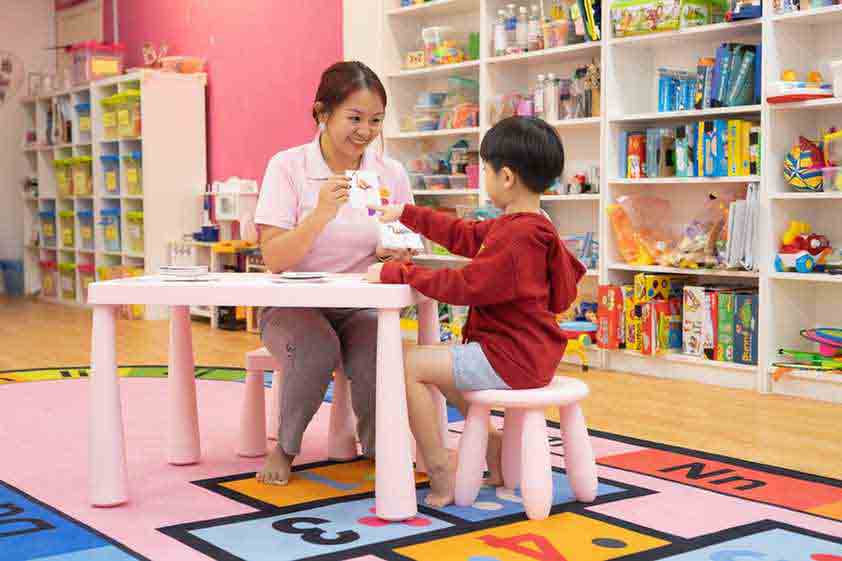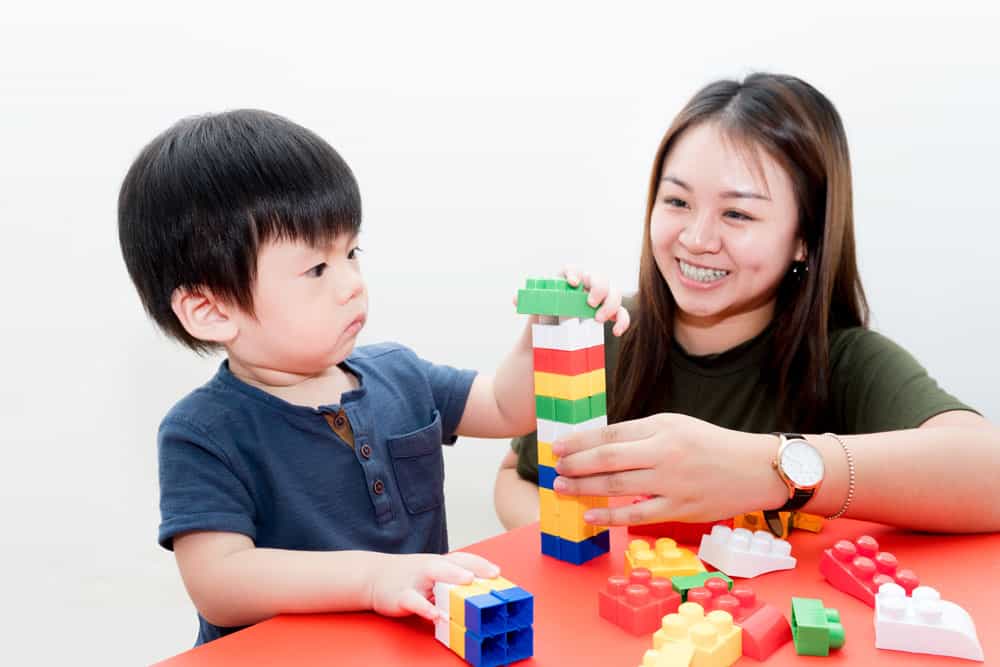Early Intervention Program (EIP)

Early Intervention Program is a combination of different services, support and therapies offered to children who have special needs or are showing early signs of developmental issues. It aims to provide assistance as early as possible to help these children overcome or reduce the effects of their developmental issues in the future. This program focuses on children who are diagnosed with autism, learning disorders, speech delays or learning disorders. It usually covers these important aspects:
- Early Diagnosis: This program aims to provide early assessments and diagnosis to catch developmental issues at an early age.
- Intervention and Therapy: Involves many therapies and services such as speech therapy, occupational therapy, sensory therapy and others customized to the needs of the child.
- Family Education & Support: Ensure that the family is given the correct information, support and training to help them understand and assist with their child's development safely at home.
- Cooperation Between Professionals: Different health experts, therapists and educators, along with the parents will prepare a specialized program that is suitable and holistic for the child.
- Emphasizing Growth: To improve the day to day skills, abilities and the child's life quality through effective interventions.

Early Intervention is extremely important as interventions and assistance at an early age is able to help them have long term positive effects on their symptoms and skills later in life. The period for the best effectiveness is around the preschool age, as early as 2-3 years old. At this time, their brains are still developing and are more "changeable" than at later ages, therefore these treatments have a higher chance at being effective long term. At FIT-IN, we believe that early interventions give your child the best start to life possible, along with giving them the best chance to develop to their fullest potential. Recent guidelines suggest starting this program as soon as autism spectrum disorder is diagnosed or seriously suspected.

Frequently Asked Questions (FAQ)
- How do I know if my child is in need of this program?
- If your child shows signs of delayed development such as speech difficulty, reduced social interactivity, or not being able to conduct daily activities can be considered early signs that your child needs special help.
- What types of therapies or assistance can I expect from this program?
- Early intervention programs usually consists of ABA therapy, speech therapy, occupational therapy, sensory therapy and guidance for families to help their child overcome their delayed development.
- How long do I have to send my child for this program?
- The length of the program depends on the needs and progress of the child, it may last for a set period or be extended to fit their development.
- What is the difference between EIP and normal early childhood education?
- EIP focuses more on helping children with special needs meet their developmental challenges, while regular early childhood education emphasizes general education for preschool children.
- Will this program help my child achieve their potential?
- Yes, early intervention gives them the best chance at developing and achieving their potential in many aspects of development.
- How can I enroll my child in this program?
- Please contact us to get an assessment with our team of experienced professionals.
- National Research Council, Committee on Educational Interventions for Children with Autism. Educating Children With Autism. Lord, C., McGee, J. P., eds. Washington, DC: National Academies Press; 2001.
- Helt, M., Kelley, E., Kinsbourne, M., Pandey, J., Boorstein, H., Herbert, M., et al. (2008). Can children with autism recover? If so, how? Neuropsychology Review, 18(4), 339–366.
 Book An Assessment!
Book An Assessment!